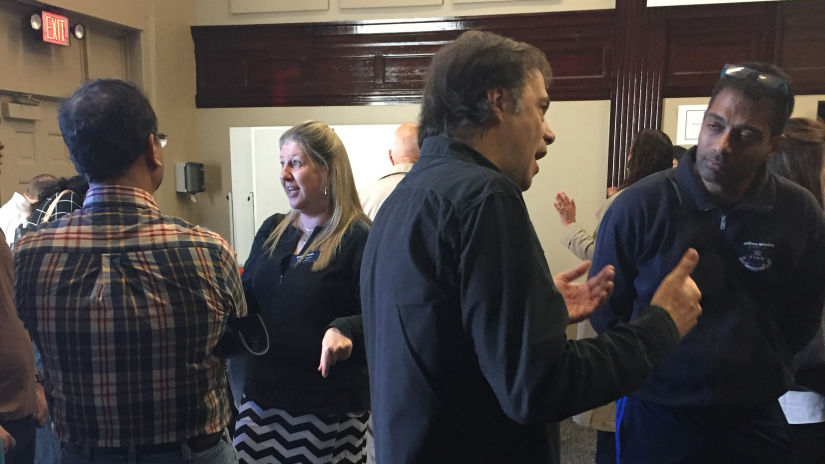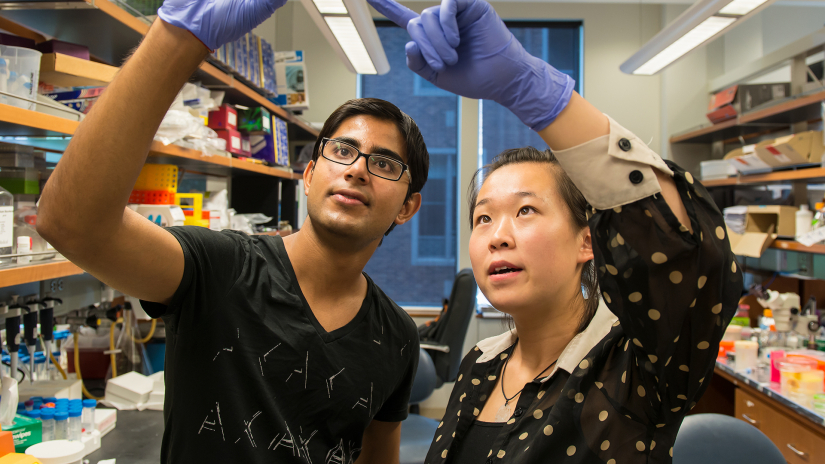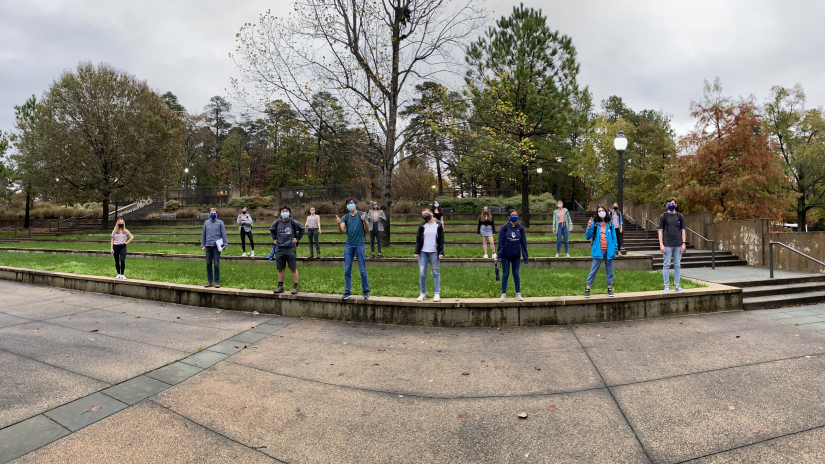Exploration of Genetics and Genomics
Overview
Discoveries of the genomes of literally thousands of organisms inhabiting this planet have facilitated renewed emphasis on the study of life and its meaning in the social sciences and humanities as well as in the life sciences. For every individual, experiencing and living the implications of such scientific discoveries depends on understanding the social and personal complexity embedded within the many contexts and filters applied to genomic information – in research labs, computer science and data management, quantitative biology, ethics debates dealing with emerging technological capabilities, genome databases, social interactions, and policy deliberations. The goal of this cluster is to introduce and explore areas of genome research and analysis. Specifically, students will explore the computational, environmental, microbial, and ethical issues, respectively. In the courses, students will devote significant time to reading and discussing the primary scientific literature, as well as interacting via small group activities, including computer programming and journal club-style presentations. This cluster is designed for students with widely varied interests to potential STEM majors who want to incorporate basic science, biomedical, computational sciences, and ethical/societal implications into their future academic and career plan.
Courses
Molecular Genetics and Microbiology 120FS/Public Policy 186FS — Ethics of Genome Research (IJ)

Susanne Haga, Associate Professor at Duke University School of Medicine, Center for Applied Genomics and Precision Medicine
This course will examine the ethical implications raised by genetic and genomic research. Students will gain an understanding of historical basis of human subjects protections in the U.S., the ethical pillars of research, and the issues that arise from genetics and genomics research. Case studies in genomics research will be used to illustrate various ethical implications. Reading will consist of review papers of the history of human subjects protections, federal regulations of human subjects protections, actual informed consent documents, and scientific papers from the primary scientific literature to illustrate the nature of modern research in this field.
Biology 138FS — Genomics of Symbiosis: Evolution, Ecology, and Genomics of Symbiotic Interactions(NW)

Francois M. Lutzoni, Professor of Biology
Symbiotic interactions are the norm rather than the exception in the natural world, yet species are usually seen and studied independently from each other. Here we explore the symbiotic connectivity among microbes and their hosts, ranging from parasitism to mutualism, by addressing questions at the junction of evolutionary biology, ecology, and genomics. Multidisciplinary research on microbiome model systems often translates to major medical advancements. One main goal of this course is for students to experience how scientists do and think about research. Readings will focus on primary research articles.
Linguistics 126FS - Evolutionary Genomics and the Emergence of Human Language (SB)

Gaillynn Clements, Lecturing Fellow in Linguistics
Multidisciplinary study beginning with Darwin’s transmutation of species and Victorian arguments of human language beginnings to modern genetic and genomic research helps re-create how human language has evolved and how linguists outline these beginnings and trace modern languages’ differences. Readings will show the breadth of this topic and include academic research in evolutionary theory, anatomy, modern genetic and genomic research, and linguistics and linguistic theory.
MGM 222FS - Genetics and Epigenetics: The Codes That Control Our Genomes (NW, WR)

Beth Sullivan, James B. Duke Distinguished Professor of Molecular Genetics and Microbiology
Many inherited cellular and physiological traits in humans are not due to changes in DNA sequence, but instead are shaped by factors such as age, diet, or environment. This course will examine sequence-independent regulation of the human genome, non-genetic diseases, environmental factors that influence or control the epigenome, and multi-generational inheritance of epigenetic information (i.e. how grandparental-experiences shape descendants’ genomes). It will also cover genome engineering and genome editing for therapy and disease correction. This course involves extensive reading of the primary literature (historical and current) and will be anchored on human genetics, although model systems (mouse, roundworm, fruit fly) will also be discussed. Open to students in the FOCUS program only.




